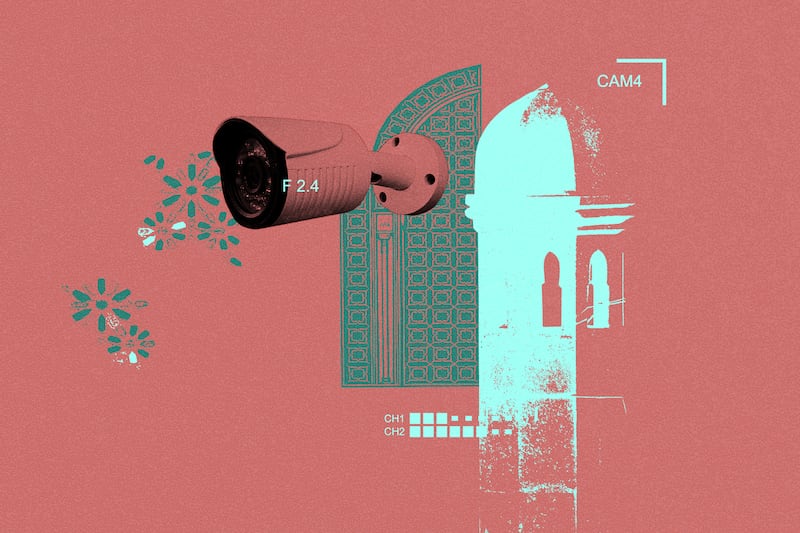The narrative around religious liberty has, in recent years, been contentious. Scholars and commentators alike have alleged that recent Supreme Court opinions demonstrate a pro-religion bias and, even more controversially, favoritism of Christians over Muslims. A case argued before the Court Nov. 8 implicates those precise issues.
Federal Bureau of Investigation v. Fazaga was first filed by Yassir Fazaga, an imam at a mosque in Orange County, California, over a decade ago. The plaintiffs accuse the FBI of infiltrating mosques in Southern California and targeting Muslims for surveillance solely because of their religion; they argue that this targeting violates their rights under the Free Exercise Clause of the U.S. Constitution and the Religious Freedom Restoration Act. Specifically, the case challenges the FBI’s use of a paid informant, Craig Monteilh, who in 2006 and 2007 gathered information on Muslims as part of a post-September 11 counterterrorism investigation.
Monteilh infiltrated mosques, religious events, community gatherings and even individuals’ homes, and gathered hundreds of video recordings and thousands of hours of audio recordings of conversations. The FBI also allegedly instructed Monteilh to focus on the more religiously devoted members of the community. In its estimation, the more devout a Muslim appeared, the more suspicious he or she was.
The blanket targeting of religious exercise should be troubling for all Americans. The government invaded private spaces and branded religious devotion threatening. What is more, after the government’s plan unraveled and the undercover agent was discovered for who he was, members of the Southern California Muslim community no longer knew who to trust. In a poignant story reported by the radio program “This American Life,” one mosquegoer described it this way, “Really, what they did is they made everybody in the mosque not trust everybody. Nobody would talk about it, but nobody — you would see some weird looks, you know what I mean? People are looking at each other weird.”
Yet, despite the egregious violations of religious rights, the case has largely been ignored in the national religious liberty conversation.
This might be due in part to the complicated nature of the legal issues. The FBI asked the district court to dismiss the religious liberty claims because, it says, the information gathered by Monteilh cannot be disclosed without harming national security (it made this request under the so-called “state secrets privilege”).
The appellate court rejected this argument and said that a section of the Foreign Intelligence Surveillance Act allows the judge to review the evidence privately without having to disclose it to the public. In other words, it is a win-win situation — the claimants can have their day in court and the government can keep its sensitive information private. The issue at the Supreme Court is whether that is, in fact, the case, or whether the states secrets privilege requires that the case be dismissed.
Equally plausible, the case hasn’t made headlines because most Americans might not consider the national security state a threat to their or their community’s religious rights. Many Muslims in the post-9/11 world have worried about overbroad government regulations of their religious exercise — and with good reason.
In the two decades since the attacks, Muslim communities have been subject to sweeping violations of their rights, including invasive government surveillance. Members of some other religious minorities — for examples Sikhs — have suffered at times, mostly because they were confused as Muslims. But America’s Christian majority has not been significantly affected.
I have to wonder if this second reason could also be why most of the conservative justices who normally express profound concern about threats to religious freedom did not raise the issue at oral arguments. Justice Neil Gorsuch alone mused that “In a world in which the national security state is growing every day, that’s quite a power,” referencing the government’s request to dismiss a case based solely on its claim that it involved sensitive national security information.
The popular narrative about the conservative justices is that they have been strongly pro-religion, but less so when Muslims’ rights are uniquely at issue. That tends to be the case when national security is at risk, since it’s mostly Muslims — not Christians — who see their rights limited in the name of security. We saw that most prominently in Trump v. Hawaii, where the court upheld the Trump administration’s ban on travel from multiple Muslim-majority states. Despite extensive evidence that the ban was motivated by the Trump administration’s anti-Muslim bias, the justices chose to defer to the president because the case implicated national security.
The reality, though, is that even if Christians have less reason to fear the national security state, ceding power to the government no matter the circumstance, has the potential to hurt all religious groups.
A group of constitutional law professors including Elizabeth Clark of Brigham Young University filed an amicus brief making that argument:
“If it is given sanction by this Court, the government will have every opportunity and incentive to employ the same tactic in future cases involving the alleged targeting of religious individuals, be they Muslims, Catholics, Jews, Mormons, Sikhs, Buddhists or otherwise. Law enforcement officials will know, when turning their sights on adherents of disfavored faiths, that they are functionally immune from suit no matter how clearly established the laws they are going to be violating, so long as they conduct their activities under the banner of national security and a court accepts the government’s claim of secrecy.”
The Fazaga case is likely going to be returned to the lower courts for further proceedings. As those judges consider the issues and more Americans (hopefully) hear about the case, they would do well to keep the religious liberty themes front and center.
Asma T. Uddin is a lawyer and the author of “When Islam Is Not a Religion” and “The Politics of Vulnerability.” She is also a contributing writer to the Deseret News.


